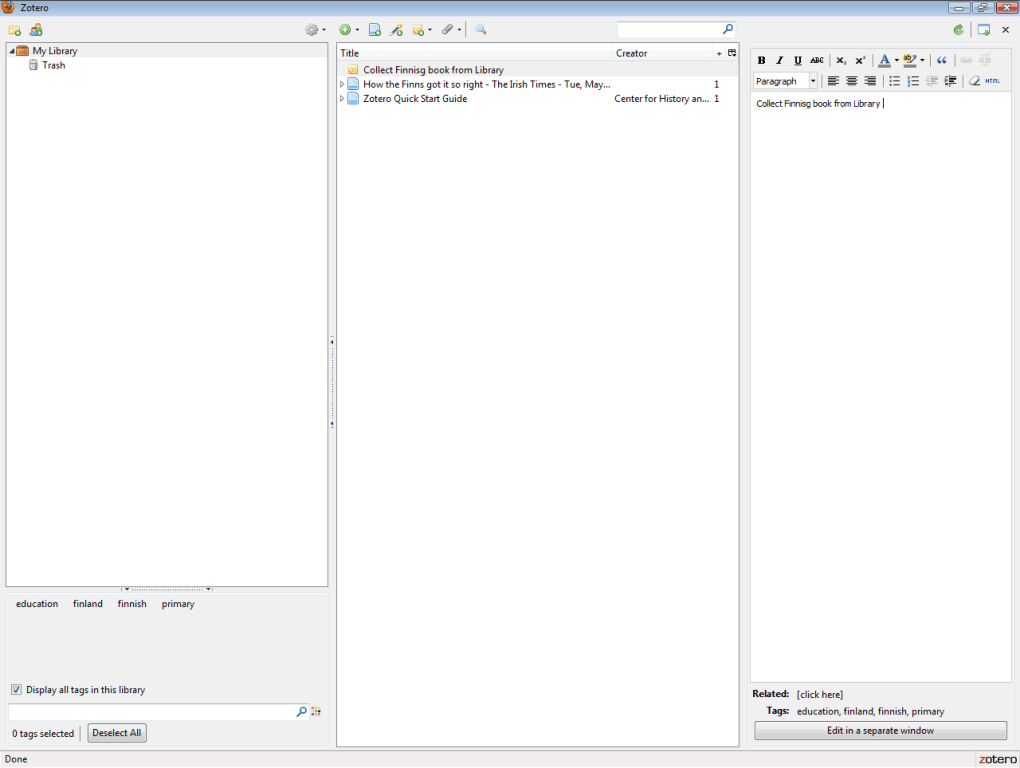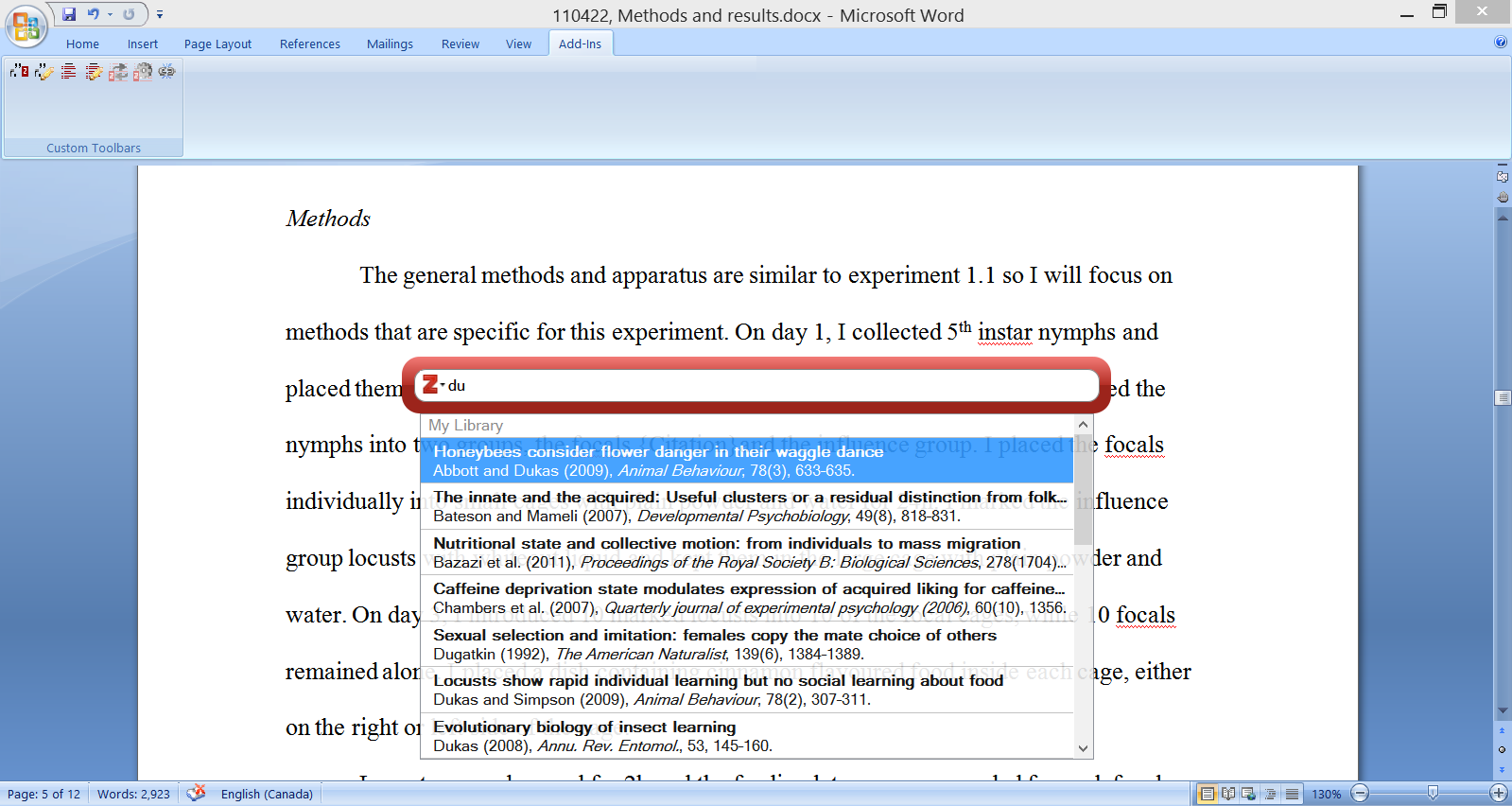


Yeah, I know, maybe I should use latex, finally commit to Overleaf, etc. I have written both of my journal papers, and my exam papers, in World. The Firefox extension can be downloaded directly from the Zotero website. When you access a resource you want to save online – a paper, an article, a piece of software – you click the Zotero button, choose the folder you’re going to save it in, and voila, the PDF is downloaded and the metadata has been extracted, and it’s all indexed in your library. The browser plug-in connects your desktop library to the internet. While you can add files to, export citations from, etc manually Zotero, a few plug-ins increase it’s usefulness significantly: The ability to extract annotations is expanded on below in plug-ins. I have started to translate these notes into Obsidian when there’s a paper I really need to know well. I do use notes – generally highlights and comments from reading the paper. The search function, combined with filing away in the correct folder, is good enough for me. Notes, tags, etcįor each indexed item, you can add your own notes (e.g. I also have folders for papers I used to prep for my qualifying exam, paper collections from various seminars & classes, etc. another that groups papers by topic / keyword.Īnother useful folder for organization is the inbox / to-read (just make sure to refile papers you read!).one that contains all the papers for a particular research project, paper, or thesis.Personally, I think it is helpful to have two sets of folders in your library: Zotero is organized into Libraries, which can be further subdivided into groups, sub-groups, etc. For ease, I will just refer to any and all reference material as “papers”. So, Zotero is an open-source resource manager - a place for you to store, organize, sort and cite documents like journal articles, book chapters, software, etc. In general, I try to use open source products where I can, because #powertothepeople, and open source developers tend to be more responsive to user needs. Mendeley is owned by Elsevier, one of the largest scientific publishing companies in the world. saving papers in folders of your choosing), there are two main software options: Mendeley and Zotero. Other than a personal file management system (e.g.

A reference management system is crucial for saving papers you read or plan to read, and organizing and exporting citations. While Obsidian can be a useful tool for managing your personal, day-to-day notes, the bulk of knowledge in a science PhD comes from papers.


 0 kommentar(er)
0 kommentar(er)
